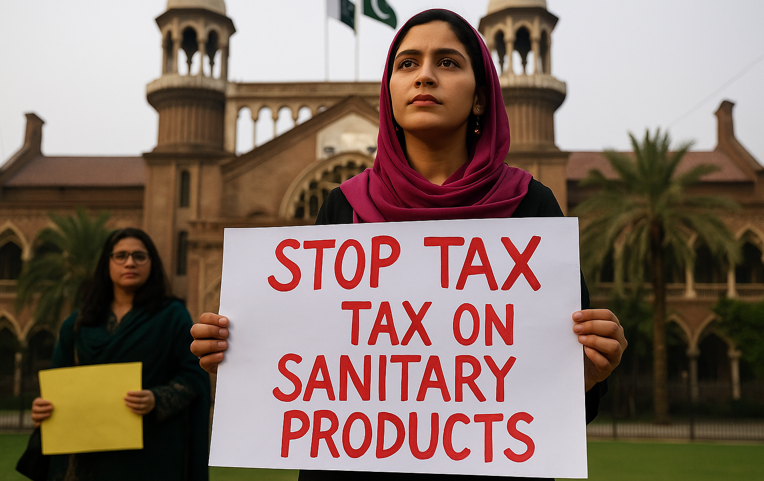Petition Filed in LHC Rawalpindi Bench
RAWALPINDI: The Lahore High Court (LHC) Rawalpindi Bench on Wednesday heard a petition against the sales tax on sanitary napkins. The petitioner argued that the levy treats a basic health need as a luxury and promotes gender inequality.
Petitioner Seeks Exemption for Women’s Products
Justice Jawad Hassan took up the case filed by Mahnoor Omer. The petition requested that sanitary pads and related hygiene products be exempt from sales tax. With the court’s approval, the Revenue Division through its Secretary was also added as a respondent.
Constitutional Rights Highlighted
The petitioner claimed the tax discriminates against women and violates fundamental rights under Articles 3, 9, 14, 25, and 37 of the Constitution. Advocate Ahsan Jehangir Khan, representing the petitioner, said only 12 percent of menstruating women in Pakistan can afford commercial sanitary pads. Many are forced to use unsafe alternatives.
Heavy Taxation on Local and Imported Pads
The counsel informed the court that locally made sanitary products are subject to 18 percent sales tax. Imported pads face a 25 percent customs duty along with sales tax. Even raw materials like superabsorbent polymer (SAP) paper carry a 25 percent tax. “By taxing sanitary products, the state penalises women for a natural biological function,” he argued.
Court Raises Maintainability Questions
The bench raised concerns about the maintainability of the petition in light of the 26th Constitutional Amendment. Jurisdictional issues were also discussed, as respondents including the Revenue Division are based in Islamabad. The petitioner’s counsel requested time to respond.
Notices Issued to Government Authorities
Barrister Zain Mansoor, Assistant Attorney General, and Barrister Raja Hashim Javed, Assistant Advocate General, represented the federal and provincial governments. The court issued notices to the federal government and other respondents to submit replies within two weeks.
Attorney General to Respond on Constitutional Issues
A separate notice was issued to the Attorney General for Pakistan under Order XXVII-A of the Civil Procedure Code. The matter has been adjourned until the petitioner addresses the court’s concerns regarding maintainability.




